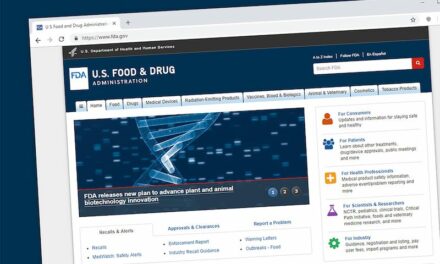The American Association of Bioanalysts (AAB) has filed a motion in federal district court to file an amicus curiae brief in support of the American Clinical Laboratory Association lawsuit challenging how the secretary of health and human services (HHS) has implemented the Protecting Access to Medicare Act (PAMA).
The lawsuit contends that HHS violated its mandate from Congress when it promulgated regulations that limited the types of clinical laboratories that would be required to report their private payor data, and restricted the list to only those establishments holding their own national provider identifier (NPI) numbers.
“By adding the unique NPI requirement, HHS exempted virtually all of the hospital outreach laboratory services from being included in the calculation of new PAMA rates,” says Mark S. Birenbaum, PhD, administrator of AAB.
AAB’s brief contends that the secretary purposefully added the NPI requirement to the definition that Congress created for an “applicable laboratory” required to report payment data, with the specific intent of reducing the PAMA Medicare rates far below those intended by Congress.
“Many hospital outreach laboratories receive two to three times what independent labs get from private payors, but only 21 of approximately 7,000 hospital laboratories reported their data,” says Birenbaum. “As a result, instead of the projected $100 million savings under PAMA, there is a projected $670 million reduction in Medicare payments for laboratory services.”
With supporting declarations from laboratories, the AAB brief argues that these cuts will cause community and regional laboratories to close, reduce services, and lay off employees, defeating the purpose of PAMA to sustain the Medicare program and protect access to care for the aged and disabled.
AAB is represented by Jeffrey Sherrin and Danielle E. Holley of the law firm of O’Connell and Aronowitz in Albany, NY. Sherrin explains that “the secretary’s redefining the term ‘applicable laboratory’ is directly contrary to the express language of the PAMA statute, and no authority has been given to HHS by Congress to do so.
“This regulation is unreasonable because it defeats the purpose of PAMA and runs counter to the aim of the Medicare Act and PAMA to ensure access to care,” says Sherrin. “We feel very strongly that the court will hold the secretary to the letter of the law.”
AAB’s brief asks the court to require that new rates be calculated that include hospital outreach laboratory data, and that pending new rates being published, HHS should be directed to reinstate the 2017 Part B Clinical Laboratory Fee Schedule rates.
To access the amicus curiae brief, click here.






